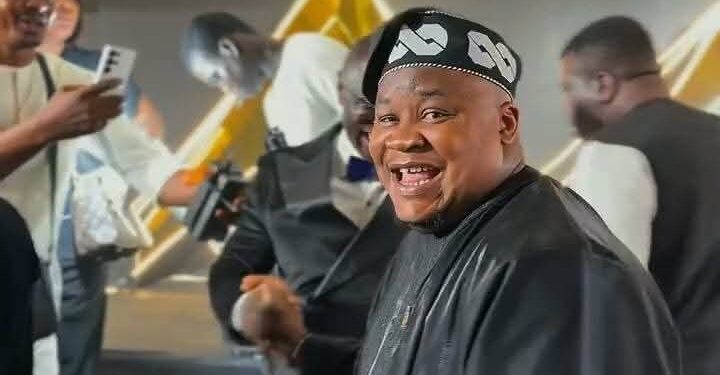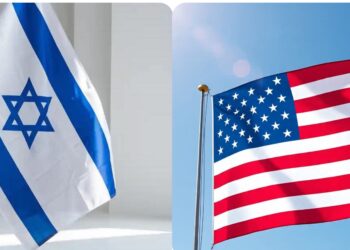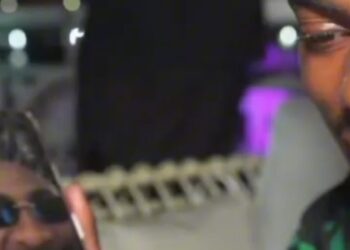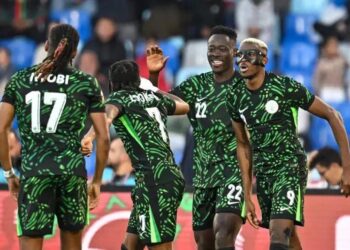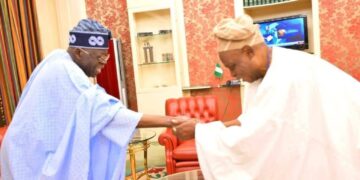
By Ibrahim Kegbegbe
When Pascal Chibuike Okechukwu, popularly known as Cubana Chief Priest, stepped into the star-studded 50th birthday celebration of his longtime associate, Obinna “Obi Cubana” Iyiegbu, heads turned—not just because of his flamboyant presence, but because of one particular detail: his cap. Emblazoned boldly on it was the now-infamous “8” logo, widely associated with President Bola Ahmed Tinubu.
What was meant to be a night of glitz, champagne, and celebration suddenly morphed into a national conversation. In a country reeling under economic hardship, with inflation biting and basic necessities out of reach for many, the logo on Cubana Chief Priest’s cap was interpreted by many as more than just a fashion statement.
To some, it was a subtle political nod, if not an outright endorsement, of Tinubu’s second-term ambitions. To others, it was merely an expression of patriotism—or worse, a performative stunt aimed at courting favour from the corridors of power.
Patriotism or Propaganda?
The “8” symbol has become a political signature of Tinubu, Nigeria’s current president, often symbolising continuity and loyalty within his inner political circle. That such a symbol made its way into a celebrity celebration, especially worn by a figure from the South East—a region with historically tepid support for Tinubu—was not only surprising but suspicious.
Critics online were quick to react. Some accused Cubana Chief Priest of “selling out” or trying to curry favour amid growing hunger and frustration in the land. Others defended the gesture, saying that celebrating national symbols or even echoing presidential styles should not be misinterpreted as a political endorsement.
“Loving your president doesn’t mean you agree with everything he does,” a user wrote on X (formerly Twitter). “It’s called patriotism. And we need more of that in Nigeria.”
But others were not so forgiving. “How do you wear that cap when the people who made you popular—ordinary Nigerians—can’t even afford fuel or a bag of rice?” another user fired back.
A Larger Conversation
The controversy reveals more than just a stylistic choice—it opens a broader dialogue about celebrity influence, political affiliations, and the responsibilities of public figures in times of national distress.
Cubana Chief Priest, known for his loud persona, flashy lifestyle, and generous giveaways, has always walked the tightrope between entertainer and influencer. But in a political climate as charged as Nigeria’s, neutrality is a myth. Every symbol, every gesture, and every cap can—and will—be read between the lines.
Some argue that Cubana Chief Priest may simply be advocating for national unity, trying to bridge regional divides with fashion as the unlikely medium. After all, must the South East and South West always remain at odds? Can’t there be a middle ground where admiration transcends tribalism?
Obi Cubana, the man of the hour, represents another layer of this complex narrative. Born April 12, 1975, the award-winning entrepreneur and chairman of the Cubana Group has built an empire around luxury and celebration. Yet even his party—meant to celebrate success—ended up becoming a stage for Nigeria’s socio-political tensions to play out.
In a better Nigeria, perhaps a cap would just be a cap. But in today’s Nigeria, where symbolism carries weight and politics is never too far from pop culture, Cubana Chief Priest’s fashion choice is anything but neutral.
Whether it was a calculated message or an innocent tribute, the cap has spoken. The question now is: who’s really listening, and what are they hearing?

